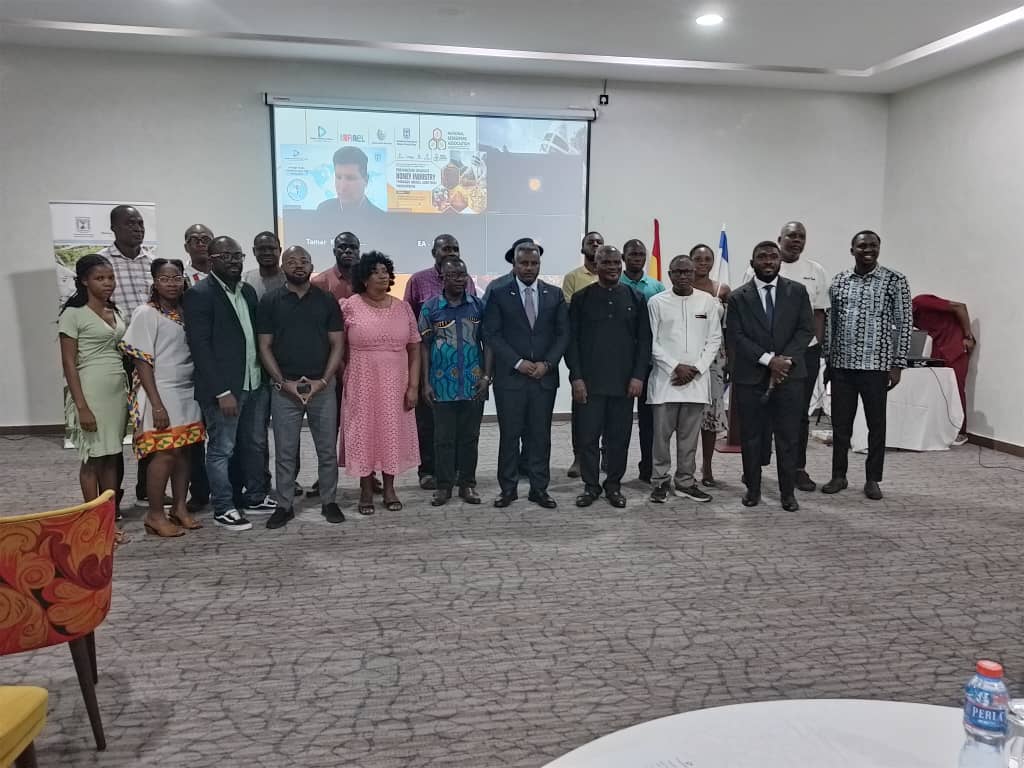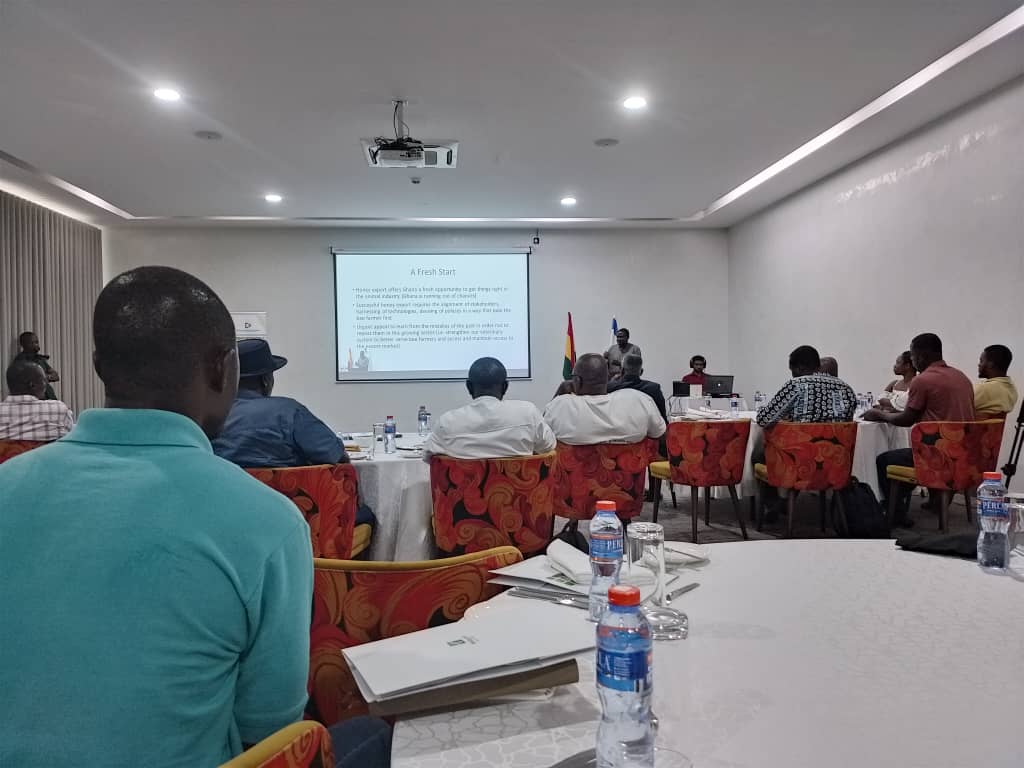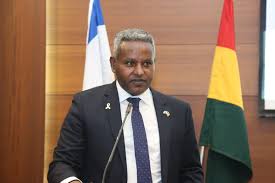Israel Partners Ghana to Boost Honey Production through Agri-Tech Innovations
In a strategic move to transform Ghana’s honey industry, the Embassy of Israel to Ghana, Liberia, and Sierra Leone has partnered with the National Beekeepers Association of Ghana (NATBA) to introduce cutting-edge Israeli agricultural technologies aimed at enhancing honey quality and production across the country.
The initiative was officially launched at a joint Economic and Trade Mission programme held on Thursday, May 29, 2025, in Accra. Speaking at the event, Aviel Avraham, Deputy Chief of Mission of the Embassy of Israel, underscored the transformative role beekeeping can play in Ghana’s non-traditional exports and ecological sustainability.
“Beekeeping may seem like a small part of agriculture, but in truth, it holds transformative power—from supporting biodiversity and pollination to sustaining food systems and contributing to exports,” Mr. Avraham stated.

Highlighting Ghana’s natural potential, he noted that the country’s rich biodiversity and favourable climate uniquely position it to become a regional leader in honey production. However, he acknowledged existing structural and environmental challenges such as deforestation, bushfires, high costs of equipment, lack of sustainable training, and pollution as major barriers to competitiveness on the global market.
“Innovation and collaboration are what we bring to the table. Israel, though small in size and resource-endowed, has built one of the most advanced agri-tech and beekeeping industries in the world,” Mr. Avraham said.
He announced that Israeli firms including Beewise, BeeHero, and H4Bees are participating in the programme, offering a suite of advanced solutions such as climate-controlled smart hives, real-time yield monitoring, autologous hive systems, bio-contributions for bee health, and data-driven pollination services.
“These technologies offer practical answers to the challenges faced by Ghanaian beekeepers. Our objective is clear—to share knowledge, improve honey quality and yield, support capacity building for NATBA and its members, and facilitate access to high-value export markets in Europe and North America,” he added.

Describing the event as a “celebration of swift collaboration and innovation”, Mr. Avraham expressed optimism that the initiative will foster long-term partnerships between the governments and private sectors of both countries, as well as promote people-to-people connections.
He lauded NATBA for its role in uniting Ghana’s beekeepers and promoting sustainable agricultural practices and extended gratitude to stakeholders including government agencies, NGOs, and private actors from both nations for supporting the programme.
“This forum is a seed planted in the fertile soil of Ghanaian-Israeli cooperation, nurtured by mutual respect and a shared vision for sustainable development,” he stated.
The Deputy Chief of Mission called for sustained engagement beyond the event, urging participants to leverage the platform for meaningful dialogue and long-term collaboration.
“Let us unlock the full potential of Ghana’s honey industry—not just for economic growth, but for the well-being of communities and the health of our environment,” he concluded.








